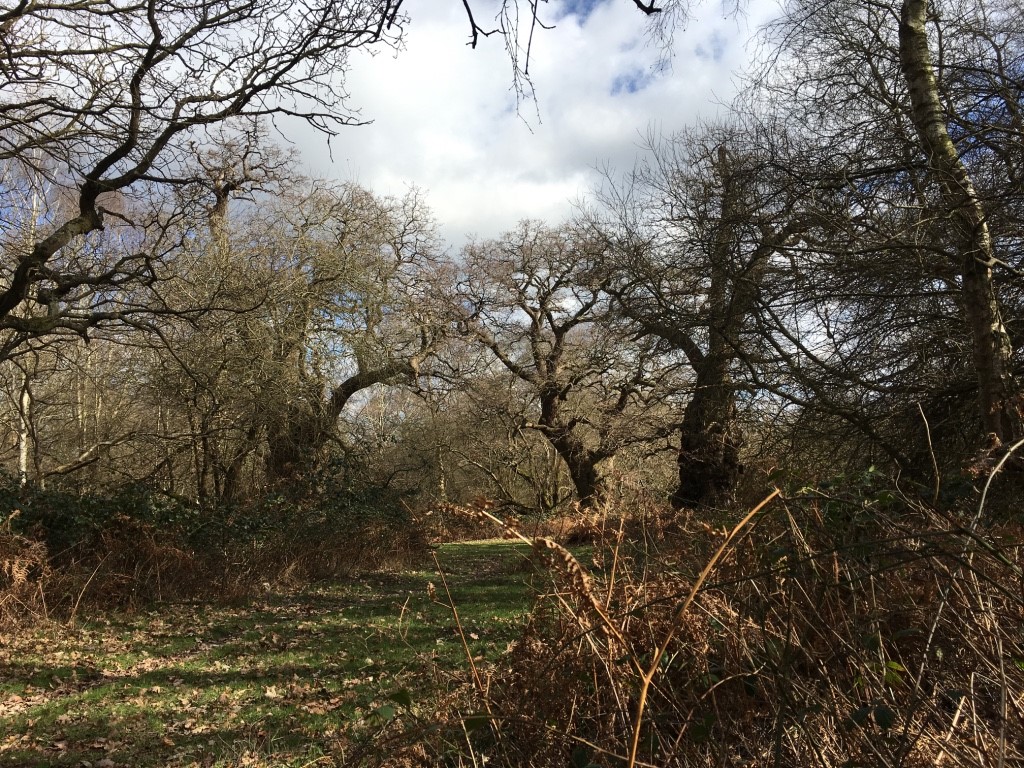- 29 May 2018

Standing under a magnificent horse-chestnut tree in Henrietta Park in Bath, Ted Green’s description about the 3 phases of a tree’s life: the first growing upwards, the second, at the peak of its maturity, blossoming outwards, and the third in gracious decline, which means protecting itself from the wind by splitting and growing a more sturdy base and preparing for decay. Determinedly refuting the term ‘dead wood’, Ted encouraged us to look at the value of the rich biodiversity in ‘decaying wood’ and in ancient trees. Biodiversity remains one of the most difficult qualities, which underpins ecosystem services, to quantify, and Guy Dukes talked about current research and methodologies under consideration for biodiversity offsetting. Factoring in lifetimes and time to this equation is a challenge that will require the best mathmeticians, storytellers, architects, developers, scientists, ecologists, engineers to innovate together. Ted challenged the common assumption that dense forest dominated the UK landscape, by asserting how copses like this (below) are fairly unchanged going back millennia.
That weekend in Bath wasn’t the first time I have recalled or referred back to Ted’s words from the third and final day of our Valuing Nature Network Business Impact School in Windsor Great Park. The reasons for how strongly some of his words have been etched into my mind include:-
- Ted has distilled his core ideas into succinct, memorable sayings;
- Ted conveys his knowledge with respect, humour and a twinkle in his eye, which makes listening a pleasure;
- Ted draws attention to the meaning behind the language and words he chooses to use.
 Having been trained as a linguist with a literature degree, I was very heartened Peter Young’s encouragement for me to bring out the importance of storytelling in my PhD research on operationalizing natural capital. Casting alternative future scenarios and narratives was a recurrent theme over the 3 days of the School, brought to the fore in the communications session by Ece Ozdemiroglu and Tim Sunderland. The how and where, who tells and to whom these stories are told is just as important, so that resilience and social and natural capital can be optimised for all. I was thinking more about this importance of context on the way to my meeting in Victoria the following day, when I came across this quote etched into the brick-work (image below), without a green shoot in sight, from the Prince Consort on his 21 years of marriage..
Having been trained as a linguist with a literature degree, I was very heartened Peter Young’s encouragement for me to bring out the importance of storytelling in my PhD research on operationalizing natural capital. Casting alternative future scenarios and narratives was a recurrent theme over the 3 days of the School, brought to the fore in the communications session by Ece Ozdemiroglu and Tim Sunderland. The how and where, who tells and to whom these stories are told is just as important, so that resilience and social and natural capital can be optimised for all. I was thinking more about this importance of context on the way to my meeting in Victoria the following day, when I came across this quote etched into the brick-work (image below), without a green shoot in sight, from the Prince Consort on his 21 years of marriage..
As a mature doctoral researcher, with 20 years of work experience, the practical nature of the Business Impact School impressed me. The policy, corporate, social and environment challenges we collectively and individually grappled with could not have been more current. Indeed, my understanding of Interserve’s approach to natural flood management directly fed into a workplan which is now a live collaboration between Moors for the Futures (EC LIFE project) and Cambridge Institute of Sustainability Leadership (CISL) and Liverpool John Moores University (LJMU) where I am based.
There is a large difference between what can be achieved within three years (a common business planning time-scale) and even thirteen years of business planning, conservation and restoration. If we are to move beyond instant gratification sought by the Caddis fly (a species with a 1-day life-span), to see our life’s purpose as creating positive futures for coming generations we need to think in transgenerational terms and take the long path. Rebecca Solnit reminds us in her 2016 introduction to ‘Hope in the Dark’ that “history is full of people whose influence was most powerful after they were gone”. We also need to recalibrate our minds beyond making every ethical philosophy into a slick business management opportunity, by creating our own mantras and myths. Ted Green’s “floodmud” (to replace ‘floodwater’ in our vernacular) will certainly be one of mine!
 The Brexit vote and subsequent triggering of Article 50 has given rise to an unprecedented state of uncertainty for academics, agricultural workers, rural communities and businesses. Within this uncertainty is room to act. Rebecca Solnit reminds us how our environment and landscapes provide the context for complex collectives memories which can enable us to act with hope – a further unquantifiable dimension which seems now more important than ever before within my lifetime.
The Brexit vote and subsequent triggering of Article 50 has given rise to an unprecedented state of uncertainty for academics, agricultural workers, rural communities and businesses. Within this uncertainty is room to act. Rebecca Solnit reminds us how our environment and landscapes provide the context for complex collectives memories which can enable us to act with hope – a further unquantifiable dimension which seems now more important than ever before within my lifetime.
https://lacatonvassal.com/data/documents/20140220-112351LV_FchA4_HabitatMaisons_CAP_bd.pdf
Thank you to the cast of participants at VNN Business Impact School.
